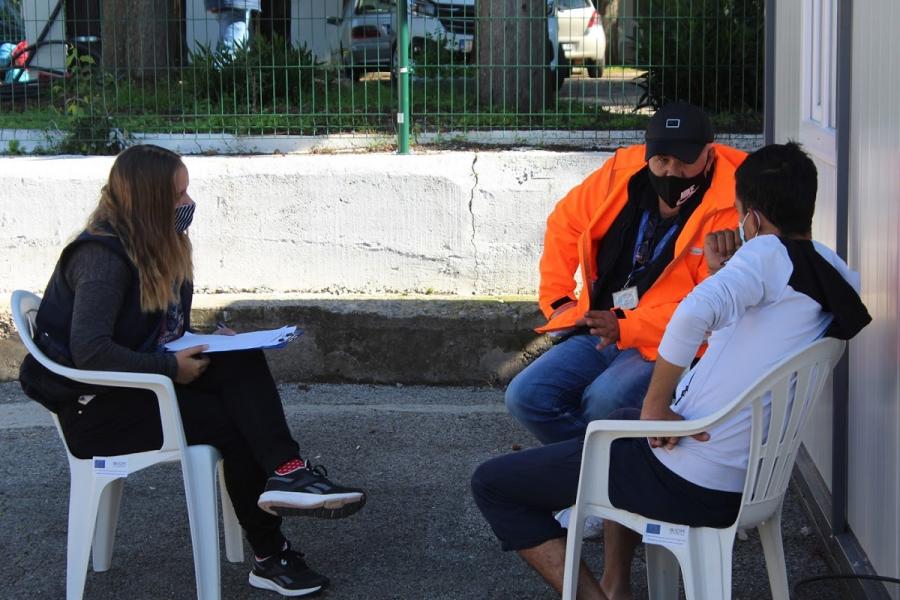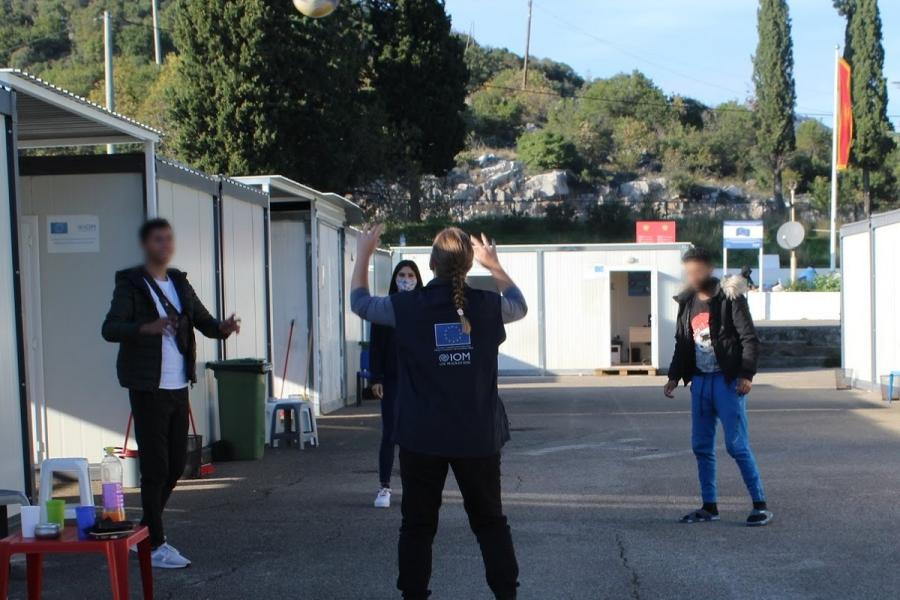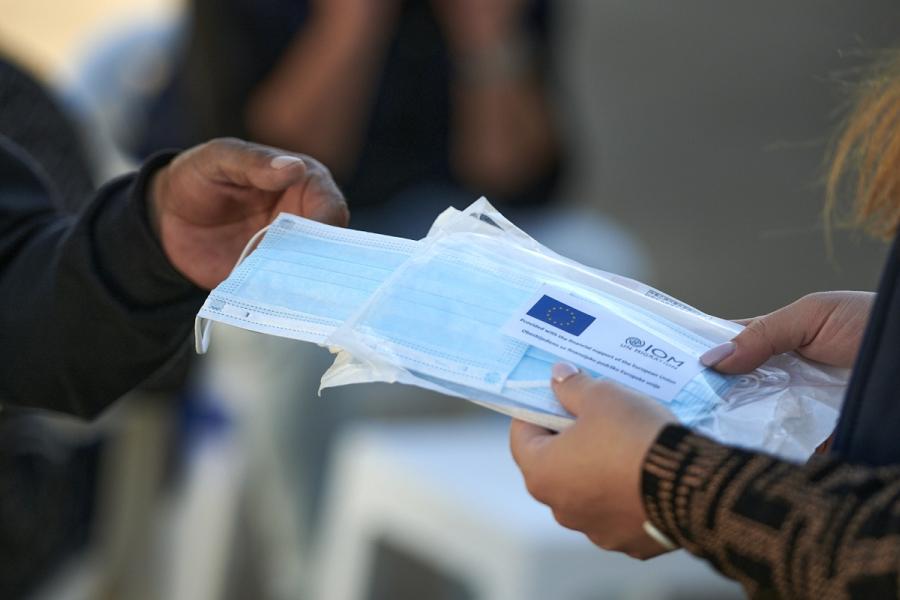Photo | ©IOM Montenegro / Duško Miljanić
Ahmad[1](link is external) comes from the city of Hasaka in Syria. His journey began in 2014, when, as a fourteen-year-old boy, he avoided different militias’ forced conscription. His family, out of fear, sent him off alone to Turkey.
He was in Istanbul until 2019, where he worked in a bakery and as a tailor for a local company. That period of his life was not easy:
“They didn’t pay me for night shifts, they said that if I wanted to keep my job, I had to work during nights as well” Ahmad
In September 2019, his family sent him money to continue the journey. He travelled to Greece, walked for over 10 days and finally came to Athens, where he rented an apartment for 100 euros a month.
It was while he was in Athens, that the first wave of COVID-19 pandemic hit the world. Pointing out what were the biggest challenges, Ahmad says: “My biggest problem was the curfew, because of which I could not leave the apartment”.
When the measures eased, he decided to continue his journey. He was turned back twice at the border with Albania, but the third time he managed to reach Serbia via Albania and Kosovo[2](link is external).
Talking with Ahmad
Photo | ©IOM Montenegro
One of his main problems was maintaining personal hygiene on the road: he walked on difficult terrain for days without a break and often had to sleep rough in the woods, sometimes without access to clean water, soap or any other means of disinfection.
The pandemic made him anxious about preserving his health in such difficult conditions. He was also concerned that he would not be able to continue his journey. “Three times they turned me back from Hungary and three times from Romania. In Romania, the police beat me with electric batons and broke my phone”, which is why he decided not to try again. He heard from some friends about a new camp in Montenegro, which – they told him – offered good living conditions. He, then, decided to go to Božaj.
“I like it here, the food is good, hygiene is up to standard, and the officials treat us nicely” Ahmad
Ahmad states “I feel safe in the Center and I don’t feel the anxiety that I used to feel before. All measures are respected here, officials wear masks, the camp is cleaned and disinfected every day, which gives me a sense of comfort and safeness that I will be able to preserve my health”. He also added that this was one of the reasons why he decided to stay in Montenegro and seek asylum.
Daily activities with beneficiaries accommodated in the Center for the Reception of Foreigners Seeking International Protection, Bozaj
Photo | ©IOM Montenegro
Božaj Reception Center was originally established in 2019 with the support of the European Union (EU) Delegation in Montenegro. In the course of 2020, through the project “Addressing COVID-19 challenges within the Migrant and Refugee Response in the Western Balkans”, financed by the EU Instrument contributing to Stability and Peace (IcSP), the center was adapted to respond to the challenges caused by COVID-19 and opened in August.
In light of the opening of the Centre for the Reception of Foreigners Seeking International Protection, the Head of the Cooperation Section in the Delegation of the European Union to Montenegro, Mr Hermann Spitz, stated that “the EU remains committed to supporting the most vulnerable people during this health crisis, be it Montenegrin citizens or refugees and asylum seekers in Montenegro.”
“We will continue to work together with national institutions and international organizations in overcoming the difficult challenges caused by pandemic. We commend the commitment of Montenegrin institutions in treating migrants with dignity and respect in these difficult times.”
Hermann Spitz, Head of the Cooperation Section in the Delegation of the European Union to Montenegro
Handing out protective mask to new arrival beneficiary
Photo | ©IOM Montenegro / Duško Miljanić
“My main sources of information are leaflets and brochures in the Center as well as officials who regularly instruct us to wear masks and take care of personal hygiene”, Ahmad
During their stay in Božaj Center, body temperature is measured to beneficiaries twice a day by a nurse. In addition, regular support of a doctor is available on a daily basis.
Thanks to the EU IcSP support, at their arrival at the Center, migrants receive masks, gloves and hand disinfectant gel. In addition, beneficiaries are provided with hygiene packages containing soap, shower gel, shampoo, shaving foam, toothbrush and toothpaste, and clean clothes. Lunch packages and drinking water are distributed as well. Every day, employees distribute cleaning products and tools for maintaining sleeping and common rooms clean.
Although at the time of writing, Montenegro was at the fourth place in the world for COVID-19 infection rate per capita, measures put in place to prevent the spread of the virus among the migrant population have proved effective and no cases of COVID-19 has been recorded among migrants to date.
[1](link is external) Name has been changed because of privacy
[2](link is external) For IOM: References to Kosovo shall be understood to be in the context of United Nations Security Council resolution 1244 (1999).
For the EU: This designation is without prejudice to positions on status, and is in line with UNSCR 1244/1999 and the ICJ Opinion on the Kosovo declaration of independence
This story was originally published by United Nations Montenegro



